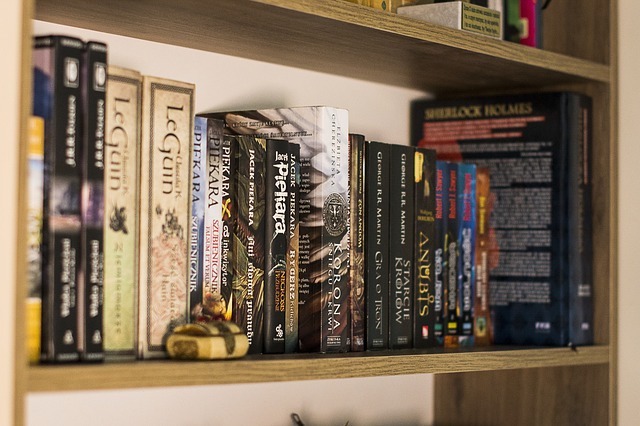Trade or Mass Market?
For those new to the publishing industry, it is easy to get lost in the terminology used by the trade. Here's a brief rundown of some of those terms.

In the past few months I have received a number of questions about distinguishing between the classifications of books. To help clear the confusion and let you label your books with ease, here are some standard definitions of books, trade books, mass-market books and textbooks
Books: All non-periodical hardcover volumes regardless of length, excluding coloring books, and all non-periodical softbound volumes over 48 pages.
Trade Books: Books designed for the general consumer and sold primarily through bookstores and to libraries ('trade,' then is in reference to the traditional trade markets these books are sold in). Though trade books were traditionally hard cover, in recent years more soft cover trade books have been common.
Mass-Market Books: Books sold predominantly through mass channels that extend beyond traditional trade outlest, such as book and department stores, to include newsstands, drug stores, chain stores, and supermarkets. Mass market paperbacks are usually printed on less expensive paper than trade paperbacks, and their covers are more likely to attract a mass audience.
Textbooks: Books designed for classroom use rather than general consumption. This category also includes workbooks, manuals, maps and other items intended for classroom use. Textbooks usually contain teaching aids, such as summaries and questions that distinguish them from consumer oriented materials (like trade books).
Read These Next
Marketing a Hard Sell Book
he book industry knows which titles sell quickly and which titles take longer to sell. Special niche books may be a "hard sell," according to publishing experts. Publishers appreciate the author’s efforts. Have you written a hard-sell book? Your personal marketing efforts may boost sales.
Five Habits of Successful Authors
While every writer has a different way of approaching their craft, there are some habits that many, if not most, successful authors engage in that contribute to their success. By incorporating these habits into your daily practices, you can increase your chance of success and personal growth in the writing industry.
Notes on the Romance Publishing Industry
On the top of popular fiction charts sits the often disrespected romance genre, but these stories of love and happily-ever-after manage to keep many publishers afloat, as readers purchase from publishers both large and small.






